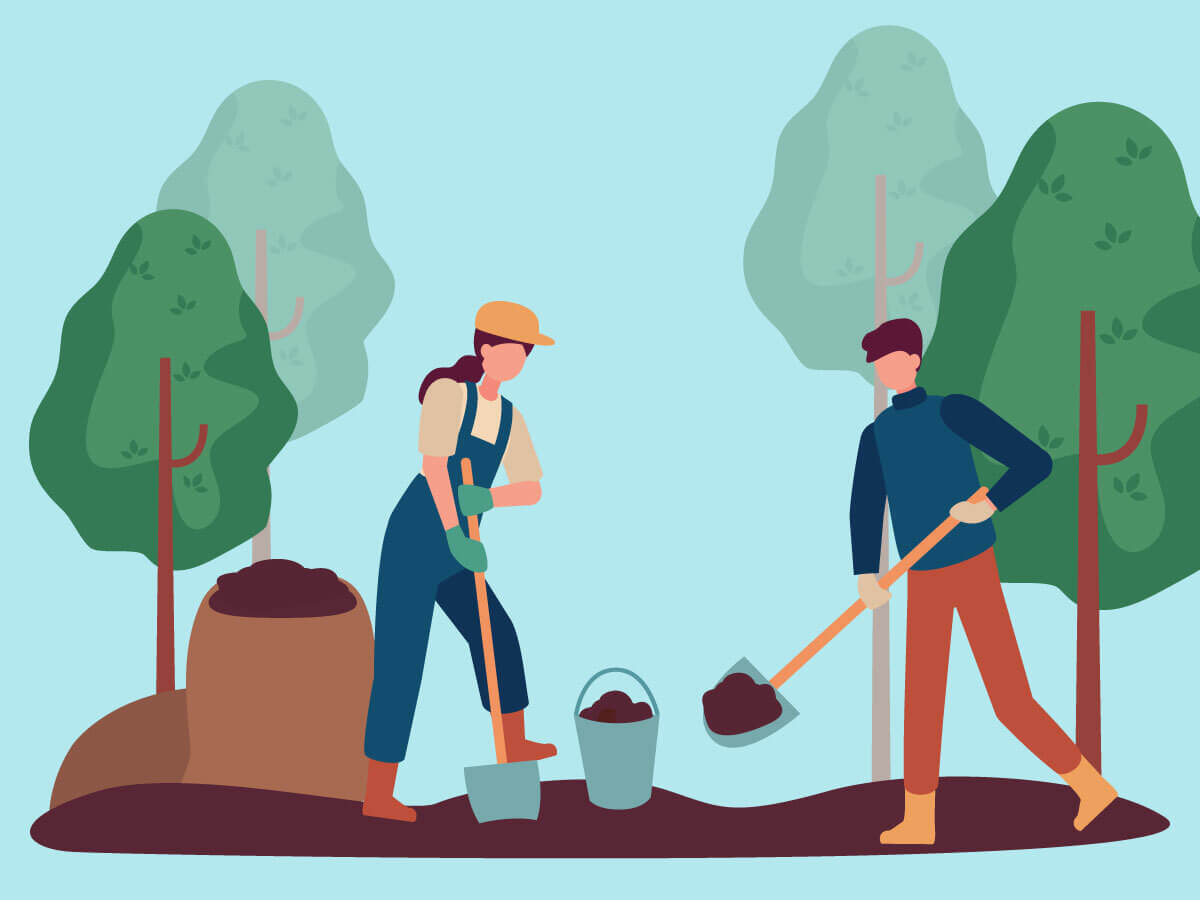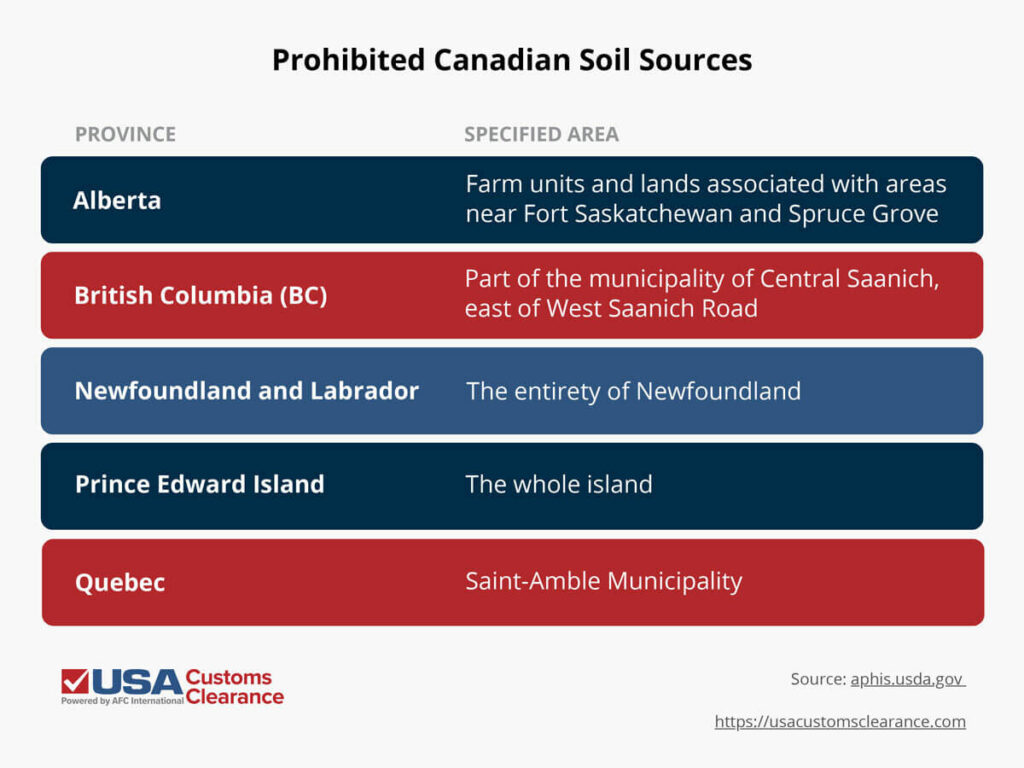
Importers who plan to bring soil into the U.S. should be prepared to face a gauntlet of regulations. While seemingly innocuous compared to commodities like firearms or pharmaceuticals, the potential dangers of contaminated soil have resulted in strict guidelines for how it’s imported, transported, and stored.
Key Takeaways:
In this guide, we’ll explain those regulations and help you import with confidence. Let’s dig in.
Before getting into these regulations, it’s worth pointing out that none of them allow for bulk importation of soil for purposes of resale. Soil brought into the country from a foreign area is to be used strictly for research and biological extraction purposes, not farming or gardening.
The main reason soil is such a highly-regulated commodity is its potential for transferring pests from one area to another. Basically, soil can contain various diseases that threaten the surrounding ecosystems. Invasive species of plants, insects, and even bacteria can do serious damage to the environment.
While screening can be done, this is not always possible on a large scale. Therefore, the United States instead heavily regulates and, in most cases, prohibits the importation of soil from foreign countries.
For the purposes of regulation, the USDA defines soil as having the following properties:
Examples include composted plants, earthworm castings (manure), and forest litter. Inorganic materials such as pure sand, iron ore, and chalk don’t qualify as soil and are exempt from these regulations.
The USDA, through APHIS, controls the influx of soil into the U.S. in a variety of different ways. First, a clear description of the intended purpose of the imported soil must be provided on PPQ Form 525-A for packages less than 3 lbs. These shipments can undergo heat sterilization under the supervision of APHIS at the port of arrival.
Second, most imported soil is expected to be destroyed after its intended use. When applying for the permit, you need to provide the method that will be used to dispose of the soil. If you’re not planning to dispose of it, an explanation needs to be given.
Under some circumstances, the receiving facility will need to undergo an inspection by APHIS. This is done to ensure that appropriate equipment and procedures are on-site.
Failing to comply with any of these requirements can have significant consequences. Most frequently, goods can be held at the border or seized permanently if the proper protocols haven’t been followed. In other cases, businesses can receive fines or jail time if the violations are more serious.

Soil samples follow the same guidelines as importing large amounts of soil; some types are prohibited, but you can apply for a permit via the USDA Plant Protection and Quarantine Permit Unit to get permission. As long as the soil samples meet the guidelines referenced above from APHIS, it is likely your permit will be granted.
Once approved for a permit, there are specific guidelines you must follow when importing and moving soil.
Soil must be carefully stored in leak-proof containers that are high-quality, durable, and can withstand any damage from shipping. Once it arrives, the soil must be treated carefully before being used and (if applicable) destroyed. You may use one of two treatments that have been authorized by the U.S. Government:
While these are the two government-approved methods of heat treatments, others may be permissible if you check with the proper offices first. These methods include acid washing, boiling, and destructive testing.
If you do plan on keeping the soil indefinitely after treatment, it needs to be stated when you apply for the import permit.
It’s also important to avoid importing soil that cannot enter the U.S. under any circumstances. Currently, APHIS lists five banned Canadian locations, which are laid out in the table below.

If you’re looking to import soil, it’s wise to work with an import and export consulting. To learn more, check out our article on import export consulting services.
In short, yes. Any shipment valued at $2,500 or more requires a customs bond, but so do all shipments that are regulated by a government agency. Since soil is regulated by the USDA, you’ll need a bond in place regardless of shipment value.
Related: How to Get a Customs Bond.
Now that you’ve seen what’s involved in importing soil to the U.S., are you ready to get your hands dirty? If so, we can help.
USA Customs Clearance has extensive knowledge and experience in navigating tricky government regulations. Our team of licensed experts will work directly with you to ensure that your soil arrives safely and without issue.
In addition to clearing your soil at the border, we can also assist you with:
To connect with our team, give us a call at (855)-912-0406 or contact us online today. You can trust us not to soil your reputation as an importer and business owner.
 Copy URL to Clipboard
Copy URL to Clipboard
can I import potting mix soil(organic like cocopeta and peats) from my greece facility to the united states?
Hi I want information to import humic and filmic acid from Mexico to the us
thanks for your attention.